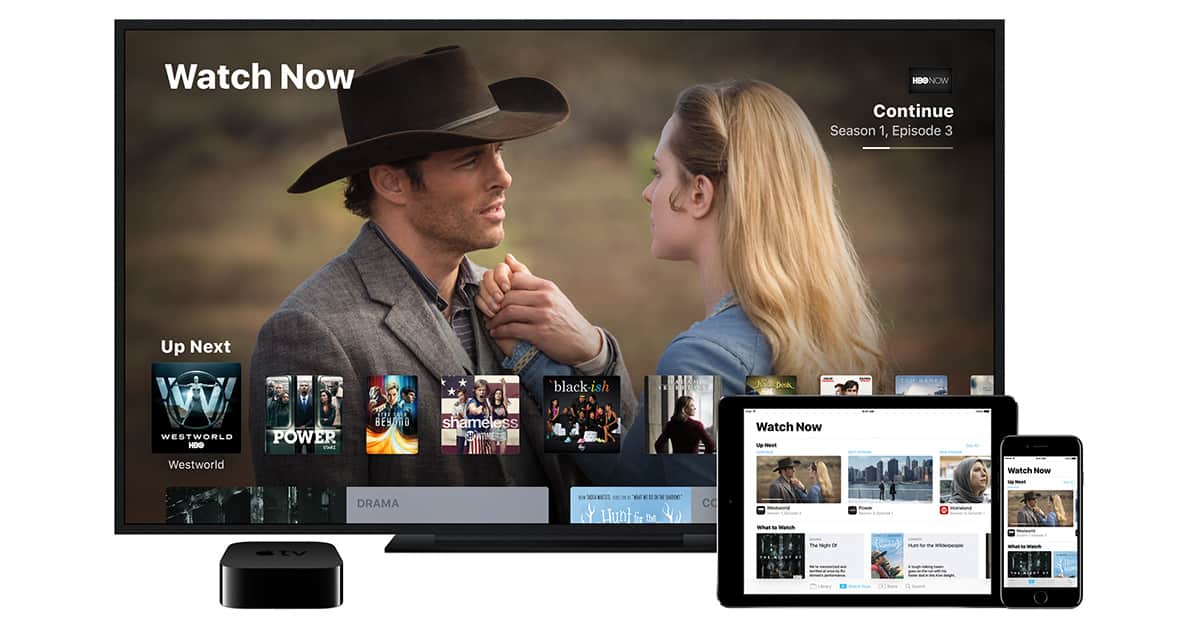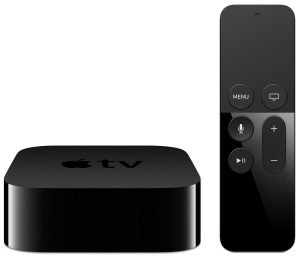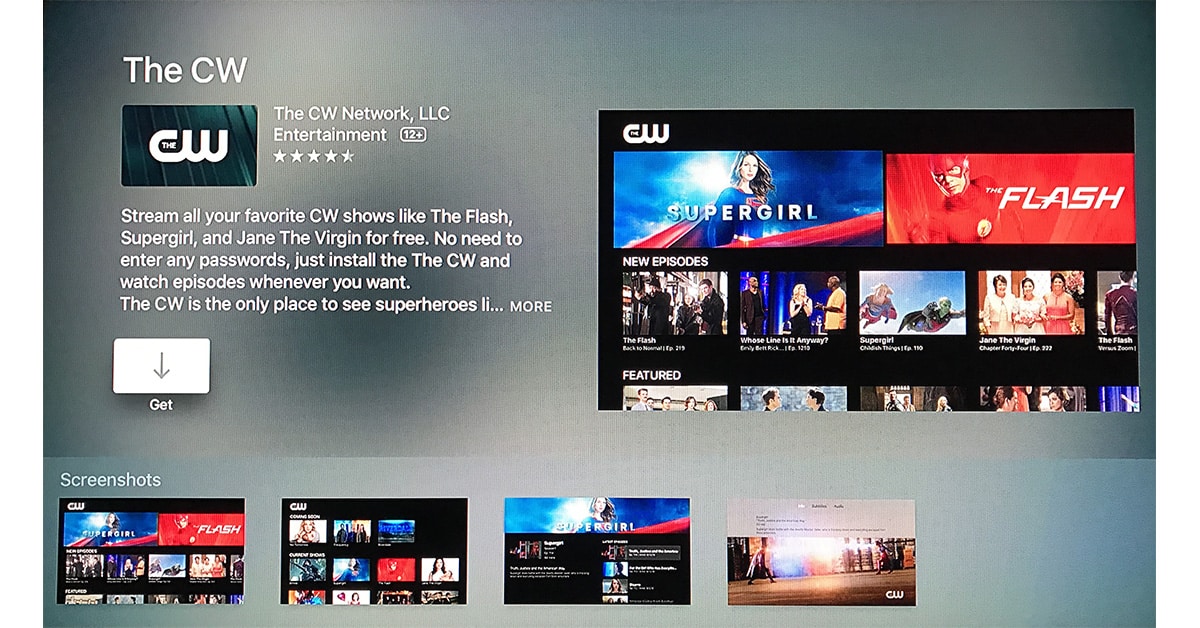From time to time, I have read articles about Apple’s plight with its TV business. And I’ve written my fair share about that as well. But I’ve never seen as complete a diagnosis as this tour de force essay. It examines the deepest motivations of Apple, it’s clash with the entertainment industry, its successes and failures, and how that has, in turn, affected software design and customer expectations.

Here’s this week’s focus article at The Verge. “Apple’s new TV app shows how painfully behind it is.” That title is deceptively simple for an article that goes into so much detail and casts so much light on the challenges Apple faces. Here’s a particularly good paragraph which ends with a particularly insightful, stinging quote.
Worse yet for Apple, it does not operate a streaming video service of its own and makes a set-top box that does nothing its competitors don’t already do, besides the robust games section of the App Store. It’s not for lack of trying. Apple has notoriously spent years trying to gain relevance in digital media, investing resources and countless failed software and hardware attempts to wrestle control away from content providers so it could offer its own solution. The TV app is just the latest potentially doomed attempt. That’s largely because it takes stellar ideas about how we should consume entertainment and smashes them against the immovable object that is the current video landscape. [Emphasis mine.]
That TV App
The recently released Apple TV app is the platform for this analysis. The article doesn’t even get into the headaches some customers have had, with the migration from the Videos app to the TV app, especially when they used a beta of iOS 10.2. The point made is one that’s a consensus in the community of observers. Without support for Netflix and Amazon Video, Apple’s TV app is confusing and disappointing. But Apple would rather, it seems, go out on a limb and ship the app, hoping they can work a deal with Netflix and Amazon later. Meanwhile, the customers and observers remain puzzled.
What this splendid article doesn’t cover in any detail is the fallout when it comes to hardware design. What I mean is that when Apple works so hard to insinuate itself into and seize control of a segment of the industry, all product design must pass through the lens of Apple’s overall agenda. That wasn’t always so.
That means that instead of “Fitting in and standing out,” Apple creates hardware and—more specifically—software that seeks to promote its own business goals. That’s in contrast to, say Roku, that simply builds delightful hardware that fits into the customer’s existing home entertainment system and adds identifiable value rather than frustration because of incomplete services.
But not all is lost for Apple. Author Nick Statt continues.
There is hope for Apple yet. The company is arguably the only player in a position to offer a democratic, holistic viewing experience that ties everything to a single source. Amazon, the company perhaps closest to that goal, makes both hardware and software. That means it tends to promote its own products over competitors’. Cable companies, too, are self-interested and prone to resisting change that could hurt their businesses. That means the products those companies produce, whether on-demand apps or live TV, are often ugly, hard to use, and rarely if ever play nice with others.
My own perspective over the years has been that Apple should make the coolest hardware money can buy and focus on fitting in with the TV hardware industry, solving real connectivity, video and and audio issues. Once customers and videophiles declare that Apple is the only company we need in addition to a 4K/UHD/HDR TV, they they’ll have a lot more leverage. But that means a fanatic attention to the broad scope of home theater hardware and connectivity issues, so often tackled by other companies without Apple’s resources or UI/UX expertise. So far, Apple doesn’t want to go that route.

Some have said that Apple is playing the long game. That may be true. But if the price to pay is an on-going frustration with Apple’s mostly failed attempts to seize control, as it did with music, then one has to ask why Apple keeps beating its head against that immovable object. As Ken Segall has said, “it’s the [Apple] products that do the talking.” So far, Apple TV has been somewhat muted.
Next page: The news debris for the week of December 12th. AI Agents are here now and changing our lives.

The music industry was reeling from Napster, and the rampant piracy of its product. It needed the iPod/iTunes and Apple to rescue its business by convincing people to pay for music again.
Eventually, the industry came to regret to power Apple had amassed over music distribution via the iTunes Music Store. Jobs and the company could strong arm the music companies and artists into selling singles cheap, instead of expensive albums that only had a few good songs.
But, it now appears that the music industry has at least pulled itself out of the ditch, by taking advantage of shifting consumption habits toward streaming. Listeners, it turns out, are willing to rent and not own music if they have access to large variety of it. Ironically, Apple didn’t see that coming, and was a late and reluctant player in the game. The company has been able to establish a decent position with Apple Music, given its established user base, but is not the top dog, nor the only dog in town. I suppose you could call it another misstep.
The TV industry has never had the issues that the music industry had. It didn’t, and doesn’t need Apple as a savior, and is perfectly happy maintaining the status quo, with distribution through the cable systems that serve 80% of American households with TVs, with either programming and/or internet service. Vertical integration (NBC/Comcast) also has its advantages.
Eddie Cue was a hard negotiator when Apple had the power, and Steve Jobs could come in and close the deal if needed. The TV guys can tell Cue to pound sand, and Jobs isn’t around to help any more. Jobs had respect in Hollywood, and they knew him through Pixar. Tim Cook isn’t able to persuade anyone with his non-existent RDF, or browbeat them if needed.
Regardless, it’s sad when Apple’s new TV app can’t do what a third party app like WatchAid already does.
There has been a lot of hand ringing here and on other sites and podcasts regarding the Apple TV’s non support of 4K TV. Comcast and many other high speed ISPs are imposing data caps that will handicap the streaming of 4K video.
Here in the Chicago area the Comcast data cap is now enforced as 1TB. Streaming 1080 P Netflix, Hulu and MLB TV during the summer months put my data usage at 600GB for one or two months each and I’m not a heavy streamer. I also have the Channels APP and watch local TV via my own digital HD Silicon Dust Hone Run Tuner and antenna. Just imagine if all three services were 4K plus using something like Sling TV or the Direct TV APP what my monthly Comcast bill would be? I would easily surpass the 1TB Comcast Data Cap The concern over Apple TV and 4K is more of a marketing concern vs. one of practicality as of late 2016.
Comcast is now offering Xfinity Stream which there is NO Apple TV APP for. There is a IOS APP for Xfinity Stream so in order to get it to your TV via Apple TV you need to use Apple Airplay. Again Comcast offers no Apple TV APP. Xfinity Stream TV offers local TV Channels and basic cable in 1080P HD plus HBO for $18.00 a month with the Xfinity Stream Video not counting against the Comcast 1TB monthly data cap. So much for Net Neutrality during the current construct of the FCC. Just wait until next year!
Monthly internet only fee is $79.00 a month for 70MB down, 10MB Up. If the 1TB data cap is blown after a few complimentary months. its $10 for each additional 50GB of data.
Just trying to bring the 4K discussion back down to earth!